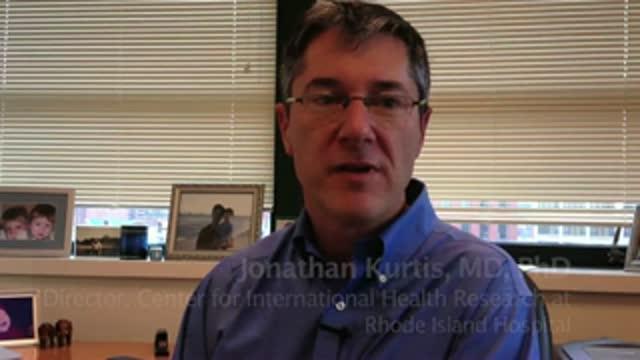"We still have additional trials ahead of us, first in another animal model, but we hope to begin Phase I trials in humans very soon," Kurtis said. "Our findings support PfSEA-1 as a potential vaccine candidate, and we are confident that by partnering with our colleagues at the National Institutes of Health and other researchers focused on vaccines to prevent the parasites from entering red blood cells, we can approach the parasite from all angles, which could help us develop a truly effective vaccine to prevent this infectious disease that kills millions of children every year."
Scientists at Rhode Island Hospital/Brown University led the discovery of PfSEA-1 and scientists at NIAID led the epidemiological studies in endemic areas, with contribution of scientists at Harvard Medical School and the University of Washington, which was partially supported by NIAID grants R01-AI52059 and R01-AI076353.

Jonathan Kurtis, M.D., Ph.D., director of the Center for International Health Research at Rhode Island Hospital, talks about the latest findings in their research to find a vaccine for malaria, which kills one child every 15 seconds in Sub-Saharan Africa and Southeast Asia.
(Photo Credit: LIFESPAN)

Jonathan Kurtis, M.D., Ph.D., is director of the Center for International Health Research at Rhode Island Hospital, and the study's principal investigator.
(Photo Credit: LIFESPAN)
Source: Lifespan